Table of Contents
Aiming for a career in Geography teaching or research? This highly prestigious exam asks for rigorous preparation and practice. And the candidates who chose Geography as their primary subject can employ UGC NET Geography previous year papers in their practice. This can help in understanding the exam pattern.
Passing this exam qualifies you for Assistant Professor positions and awards Junior Research Fellowships (JRFs) to support your research endeavours. This article provides a guide to the NTA NET Exam for Geography, including access to past question papers. By analyzing these papers, you’ll gain valuable insights into the key topics you need to master for success.
What is the UGC NET Geography Exam?
The UGC NET Exam for Geography, formally called the University Grants Commission National Eligibility Test, is your key. This competitive India-based exam opens doors for Assistant Professor positions and awards Junior Research Fellowships (JRF) in Geography. It assesses your knowledge, understanding, and research potential in Geography, research methods, and even general awareness.
UGC NET Geography Previous Year Papers: Highlights
The NET Geography Exam 2024 is conducted twice every year by the National Testing Agency (NTA) in online mode. Candidates preparing for the UGC NET 2024 Exam must go through the Geography Previous Year Question Papers and UGC NET Syllabus for Geography as released by the NTA on their official website. Refer to the following table for more information.
| Highlights of the UGC NET Geography Exam | |
|---|---|
| Conducted by | NTA (National Testing Agency) |
| Subject code | 80 |
| Number of papers | 2 (Paper I & Paper II) |
| Subject Name | Geography |
UGC NET Geography Question Paper Pattern
Understanding the UGC NET Geography exam pattern stands as a paramount factor in your preparation journey. The NET examination consists of two papers: Paper 1 and Paper 2. Paper 1 is a General paper applicable to all subjects, while NTA NET Geography Paper II comprises 100 multiple-choice questions, each carrying a value of 2 marks, resulting in a cumulative score of 200 marks. There is no negative marking for incorrect answers on the UGC NET exam. Below, you’ll find a comprehensive breakdown of the detailed exam pattern.
| Paper | Number of Questions | Total Marks | Duration |
| Paper 1 | 50 | 100 | 1 hour and 30 minutes |
| Paper 2 | 100 | 200 | 1 hour and 30 minutes |
| Total | 150 | 300 | 3 hours |
UGC NET Geography Previous Year Papers
Analyzing past exams is key to understanding the difficulty level and crafting a winning study plan. We’ve got you covered – download our free, previous-year UGC NET Geography question papers (PDFs) and jumpstart your focused prep. These resources will significantly boost your score. Download now and get studying!
UGC NET Geography Previous Year Question Papers PDF
Practice makes perfect, especially when it comes to the UGC NET Geography Exam. Previous year’s question papers are your goldmine for success. They not only reveal the exam format but also show the weight and focus on different topics. This intel lets you build a study plan that targets your weak spots and maximizes your score.
Check out the downloadable PDFs of UGC NET Geography Previous Year Papers (linked below this article). Analyze these papers to identify key topics and areas needing extra practice. Download now and take control of your exam preparation!
| UGC NET Geography Previous Year Question Papers PDF | |
| Year | PDF Link |
| UGC NET Geography Previous Year Question Papers 2023 | Click Here to Download PDF |
| UGC NET Geography Previous Year Question Papers 2021 | Click Here to Download PDF |
| UGC NET Geography Previous Year Question Papers 2020 | Click Here to Download PDF |
Benefits of UGC NET Geography Previous Year Papers
Engaging with the UGC NET Geography exam papers from UGC NET previous years offers a range of advantages which are as follows:
- Master the format: Past papers show you exactly what to expect on exam day, reducing stress and maximizing confidence.
- Target your weaknesses: Identify areas needing extra focus by analyzing the types and difficulty of questions asked.
- Sharpen your time management: Practice under timed conditions to develop exam-day stamina and ensure you finish on time.
- Pinpoint your strengths: Discover what you already know and build on it for a well-rounded understanding.

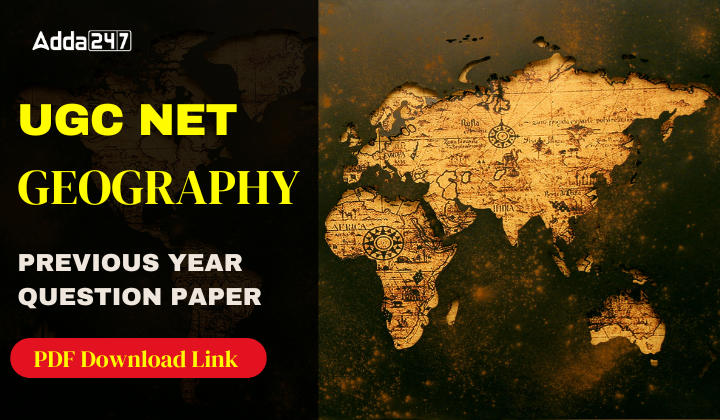
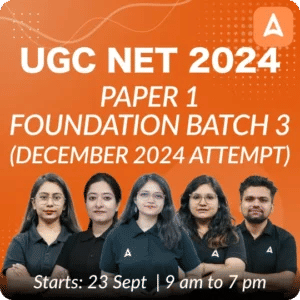

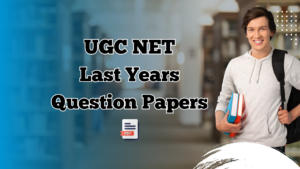 UGC NET Previous Year Question Paper, Do...
UGC NET Previous Year Question Paper, Do...
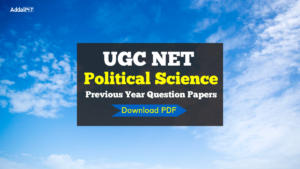 UGC NET Political Science Previous Year ...
UGC NET Political Science Previous Year ...
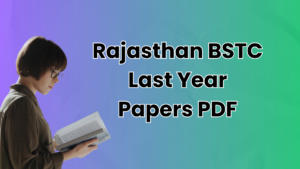 BSTC Previous Year Question Papers Downl...
BSTC Previous Year Question Papers Downl...














